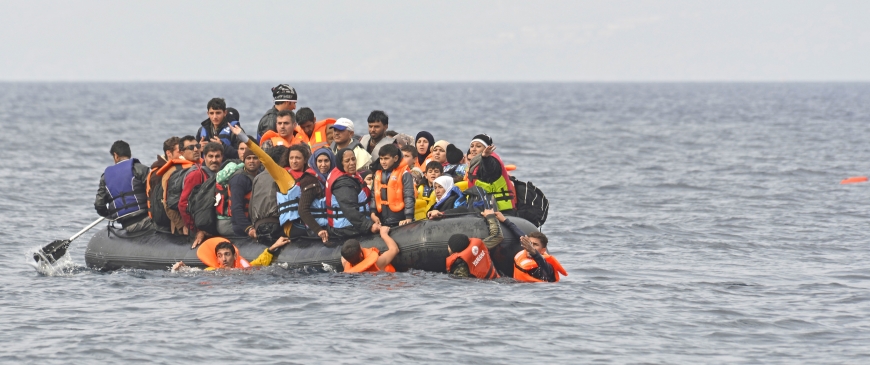
Migrant flow continues to cross the Mediterranean
The rescue [which saw almost 600 refugees picked up] coincided with the release of a report by a think-tank that examined the EU’s response to migrants crossing the Mediterranean, suggesting that the union was shifting from internal reforms to making deals with countries in Africa and Asia to try to halt the flow of refugees before they even leave their countries of origin or where they leave from to head to Europe. The report, authored by Luigi Scazzieri and John Springford for the Centre for European Reform, says that “the EU’s initial ad hoc response to the migration crisis [has] slowly being formalised into a strategy to curb migration by using foreign policy to prevent migrants from crossing the Mediterranean.
“The EU’s recent dealings with Libya, which have been led by Italy, illuminate the compromises that the EU must make with third countries to curb migration. While the EU has been successful in reducing flows, by providing money to Libya and training the country’s coastguards, this deal is fragile and has come at the cost of migrants’ human rights.”
Instead, the report says that over the longer term it will only be through the union being willing to commit its considerable resources to improving security and economic opportunities in countries of origin that will slow the flow of people into Europe.
Mr Scazzieri says: “There is more scope for the EU to use its leverage to sign readmission agreements with countries of origin, or to support member-states in brokering readmission agreements. The EU can deploy a wide range of incentives in securing readmission agreements, from visa policy to aid. And the Union’s vast financial resources remain an untapped asset in fostering economic development. The EU can do more to make use of them.”
